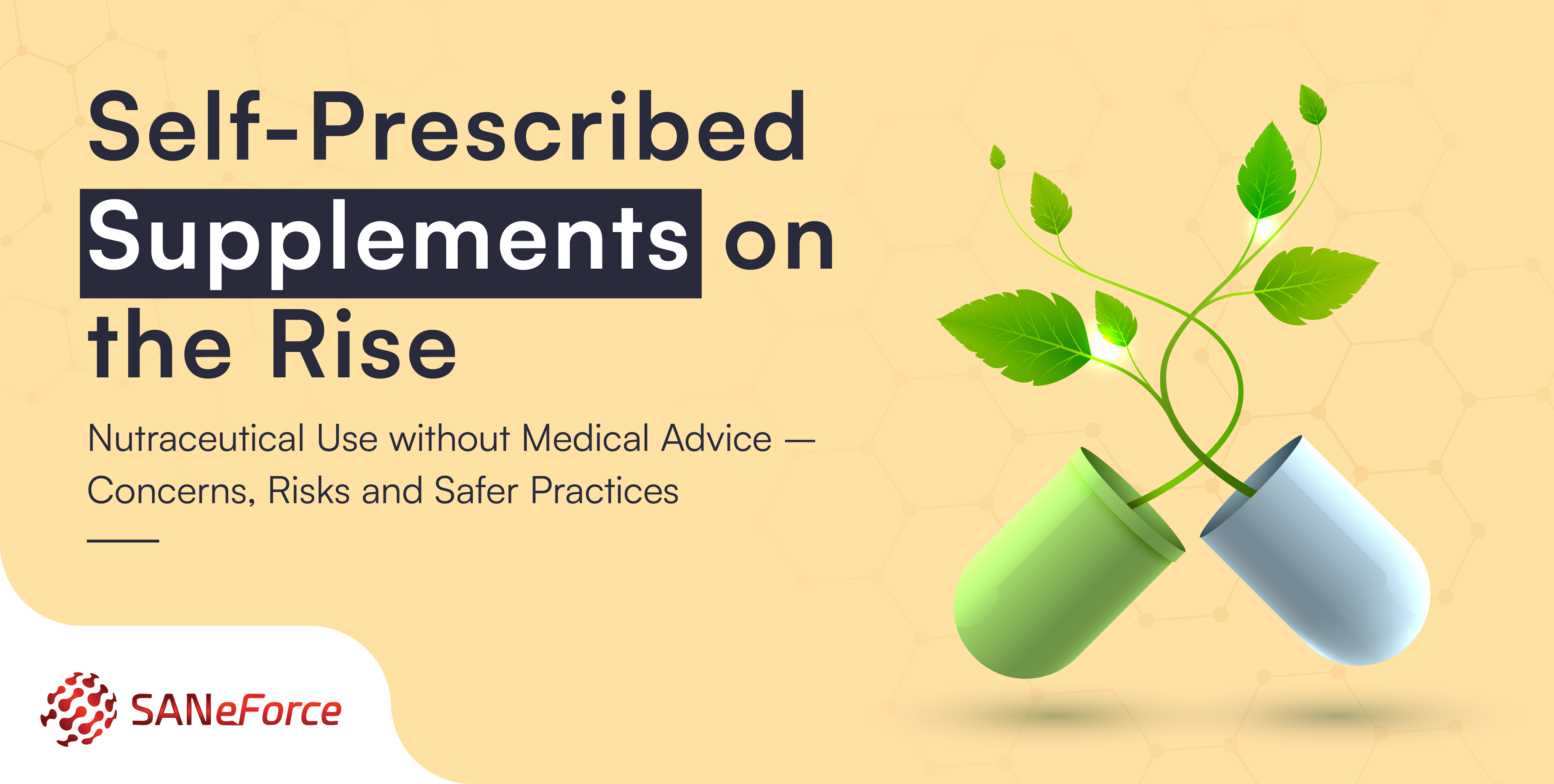Walk through any supermarket or pharmacy and you’ll find shelves packed with vitamins, herbal capsules, and powdered boosters. From vitamin D drops to collagen powders, supplements and nutraceuticals have quietly become part of daily life for millions. What started as a medical necessity for deficiencies has evolved into a trend largely driven by personal choice rather than professional advice.
More than half of consumers now take supplements without ever consulting a doctor. Easy access, social media influence, and the belief that “natural equals safe” have fuelled this self-prescription habit. But taking pills without knowing whether your body actually needs them can cause more harm than good.
Why Self-Supplementation Is So Common
Many people don’t turn to supplements after a medical recommendation they take them because a friend suggested it, or a fitness influencer swears by it. Some believe supplements will boost energy, enhance skin, or strengthen immunity. Over time, these become part of daily routines, often without understanding what the body truly requires.
Today, around 58% of consumers admit to taking health supplements without consulting a doctor. The rise of self prescription is driven by easy access, persuasive marketing, and the belief that "natural" products are always safe. This is especially common among older adults, who may take multiple pills a day some prescribed, some not. When these aren’t discussed with doctors, dangerous overlaps and side effects can go unnoticed.
The Hidden Risk of “Too Much”
Just because something is available over the counter doesn’t mean it’s risk free. Dosage matters a lot. For example, while vitamin D is essential for bone health, exceeding the safe daily limit of 4,000 IU can lead to calcium buildup, nausea, kidney damage, or heart issues.
Some people unknowingly double up on ingredients by taking different supplements with similar contents. Others stick to high doses for months, thinking more equals better. But in reality, excess can backfire and sometimes dangerously so.
When Supplements Make Sense
Despite the risks, supplements can be beneficial in specific cases. Vegetarians may require vitamin B12, pregnant women are often advised to take iron or prenatal multivitamins, and people with limited sun exposure may need vitamin D. In such cases, supplements help fill nutritional gaps but only when those gaps are verified.
Problems arise when people guess what they need, skip medical advice, and treat supplements like shortcuts to better health.
The Pros of Taking Supplements (When Used Correctly)
✔ Help correct nutritional deficiencies
✔ Support specific needs like pregnancy, aging, or plant-based diets
✔ Improve bone, skin, or immune health when medically necessary
✔ Provide targeted support when diet falls short
The Cons of Taking Unprescribed Supplements
✔ Risk of vitamin toxicity, especially fat-soluble ones like A, D, E, and K
✔ Imbalances (e.g., too much zinc interfering with copper levels)
✔ Harmful interactions with prescription medications
✔ Overlapping ingredients in multiple products
✔ Poor quality or contamination due to weak regulation
✔ False belief that pills replace a healthy diet or lifestyle
✔ Potential long-term damage if taken without proper monitoring
If You Still Choose to Self-Supplement
If you're planning to take supplements without medical advice, take a few precautions. Start with a blood test don’t guess what your body needs. Stick to recommended daily amounts and avoid combining products with similar ingredients. Choose reputable brands that are third-party tested and always tell your healthcare provider what you're taking even if it’s “just a multivitamin.”
Supplements aren’t meant to be permanent. Once your body reaches balance, they might not be needed. Reassess regularly. Think of supplements as a short-term support, not a lifelong fix.
Final Thoughts
The rising trend of unprescribed supplement use reflects a desire to take control of personal health. While this isn’t entirely negative, it does come with risks. Self-supplementing can help fill minor nutritional gaps—but without proper guidance, it may do more harm than good. When in doubt, test before you ingest.
Real wellness comes from balanced nutrition, movement, sleep, and stress management not just popping pills. Use supplements as tools, not crutches and always with intention, not assumption.

